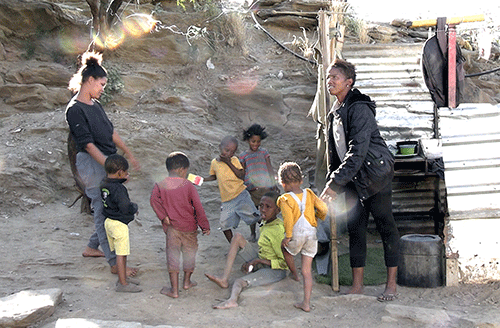Isai Sipunga
Robinho Rooinasie is a 12-year-old boy living with a disability.
His back and legs are severely deformed, making it impossible for him to use a wheelchair, according to his stepmother, Paulina Bock.
She shared the family’s struggles after medical experts advised against using a wheelchair due to the risk of infections posed by his spinal deformities.
“I took him to the Hakahana clinic to enquire about a wheelchair, but they informed me that he could develop infections because of his curved spine,” said Bock.
Bock met Robinho’s father, Manfred Rooinasie, around 2017. Since then, they have attempted to enrol him in school. However, they face difficulties due to missing crucial documents needed from his biological mother, who also lacks any paperwork.
“We’ve visited the Ministry of Home Affairs, Immigration, Safety and Security, and were instructed to locate his mother. After finding her and returning to Home Affairs, we discovered she also lacks proper documentation,” stressed Bock.
In another attempt to secure Robinho’s education, both parents, Bock and Rooinasie, were referred to the Ministry of Gender Equality, Poverty Eradication and Child Welfare. Yet again, this process required the presence of the minor’s biological mother, who, according to Bock, could not be located at present.
Paulina, Manfred, Robinho and at least two other minors are currently residing in a modest one-bedroom shack in an informal settlement on the edge of a mountainous area in Hakahana, Windhoek.
During weekdays, the unemployed Bock manages their household affairs, while Manfred works as a cook at a catering business. Their primary challenge is providing the necessary care for 12-year-old Robinho.
Because he cannot walk, he moves by sliding on his bottom, which causes his pants to frequently tear, necessitating constant replacement. Manfred describes this as a significant financial strain, given their precarious financial situation.
As his father and stepmother continue their efforts to secure his right to education and a better quality of life, Robinho remains hopeful that one day he will attend school and participate in activities like other children in his neighbourhood.


